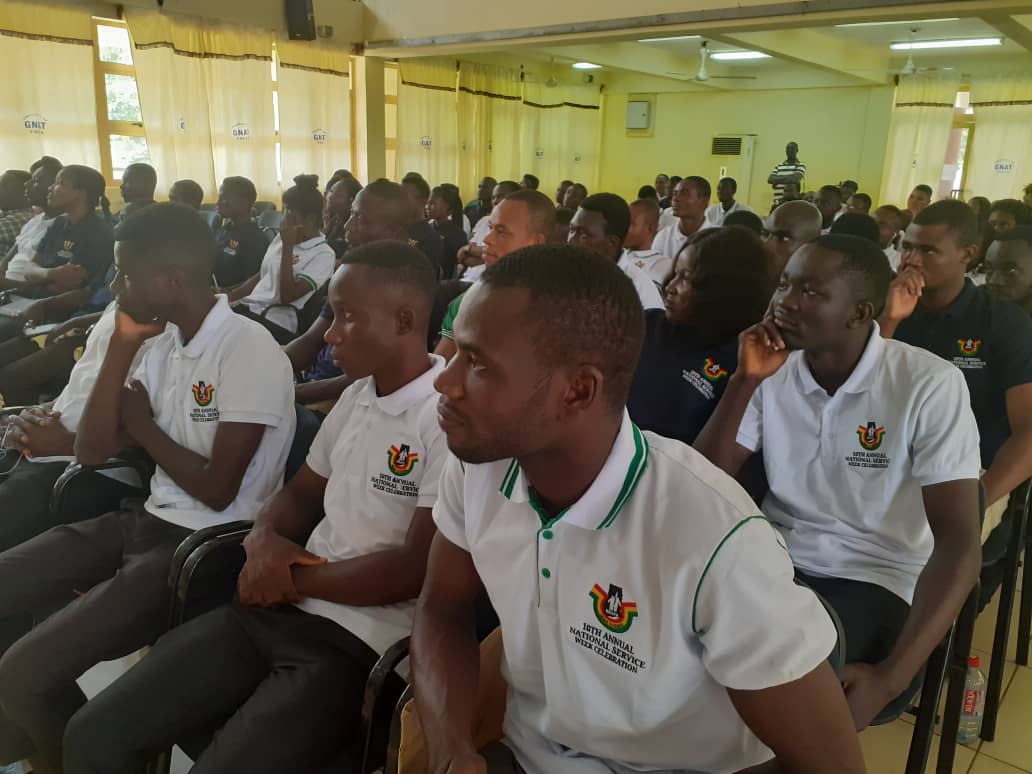Despite several appeals to public institutions not to reject National Service personnel posted to them, the practice is rife this year.
Some National Service personnel posted for 2019/2020 service year to state institutions from some public tertiary institutions have been rejected.
The personnel were turned away primarily because of lack of space to accommodate them or mismatch with the educational qualification and place of posting.
Some regional directors also gave the excuse that the user agency acceptance form of the personnel are to be sent to their head office at Accra for endorsement since the head office is responsible for the endorsement.
Meanwhile, on the form, the indication is that it is to be endorsed by either the head of department (HOD) or the supervisor of the institution in the region or district where the individual has been posted.
Some of the rejected National Service personnel took to social media to complain about the situation.
Some frustrated personnel expressed disappointment in the state institutions and the whole system, accusing the heads of being fishy to favour their favourites.
Many of the affected service personnel do not want their names revealed for fear of victimisation.
However, Emmanuel Gameli Dovia, a Bachelor of Arts in Communication Studies graduate posted to the Ho office of the National Communications Authority (NCA) expressed disappointment.
“I was told initially that my form will be sent to Accra for signing. So, for them to delay me for more than two weeks before calling me to come for my rejected form despite Ho NCA office stamp issued together with their signature is disappointing. If they knew they won’t take me, why the delay?” Emmanuel added
“I have to be going from one state institution to the other to see if they will accept me, and till now I don’t know my fate,” one service person also lamented.
Another service person said, “If this is not a mandatory service, I would not have been wasting my time in this kind of frustration. I did not post myself here but I don’t know why I shouldn’t be accepted. I think this is my field because I studied the related course in school”.
Some are of the view that these institutional heads are trying to make the National Service Scheme Secretariat and the government unpopular.
“This is Ghana for you; if you follow this case, these heads will deny all these. The National Service Secretariat has a database so they should provide the statistics to authorities to invite all heads and query them why they rejected personnel that were supposed to their firms.
“This is simple. We work with data so I don’t see any big deal in calling these heads to order because with this behaviour, National Service has no future. They are denying students their rights. So in Ghana, nothing works?”
Search conducted also revealed that some personnel in the Volta Region, for instance, have not reported at their post as at yesterday due to this development.
The stranded personnel are, therefore, calling on the Secretariat and government to call these heads of state institutions to order or scrap the National Service Scheme entirely from our laws if the exercise has outlived its relevance.
Background
The National Service Scheme (NSS) is a Government of Ghana programme under the Ministry of Education of Ghana, with a national secretariat in Accra and offices in all administrative regions and districts across the country.
The National Service programme is a compulsory one-year service required of all citizens of Ghana who are 18 years and above at the time of deployment.
The scheme, which started in 1973, now operates under Act 426 (of 1980) after the National Service Scheme Decree, 1973 (NRCD. 208) was repealed.
The objectives of the scheme are to encourage the spirit of national service among all segments of Ghanaian society in the effort of nation-building through active participation; undertake projects designed to combat hunger, illiteracy, disease and unemployment in Ghana; help provide essential services and amenities, particularly in towns and villages of the rural areas of Ghana; develop skilled manpower through practical training; and promote national unity and strengthen the bonds of common citizenship among Ghanaians.
Established in 1973, the scheme is mandated to deploy a pool of skilled manpower drawn primarily from tertiary institutions to support development efforts of both the public and private sectors in Ghana.
Although it is a citizenry requirement for all Ghanaians who are 18 years and above, it is currently limited to and mandatory for all Ghanaians graduating from tertiary educational institutions who are not less than 18 years old.
The original intent of deploying freshly graduating youth under the NSS arrangement was to ensure that priority sectors of our national life are never lacking in the requisite human resources needed for development.
The scheme provides newly qualified graduates the opportunity to have practical exposure on the job, both in the public and private sectors, as part of their civic responsibility to the state.
Source: The Finder

